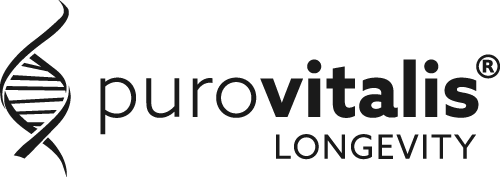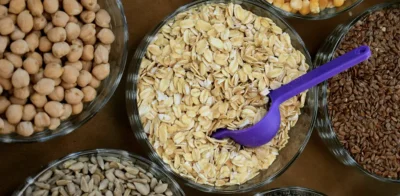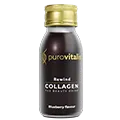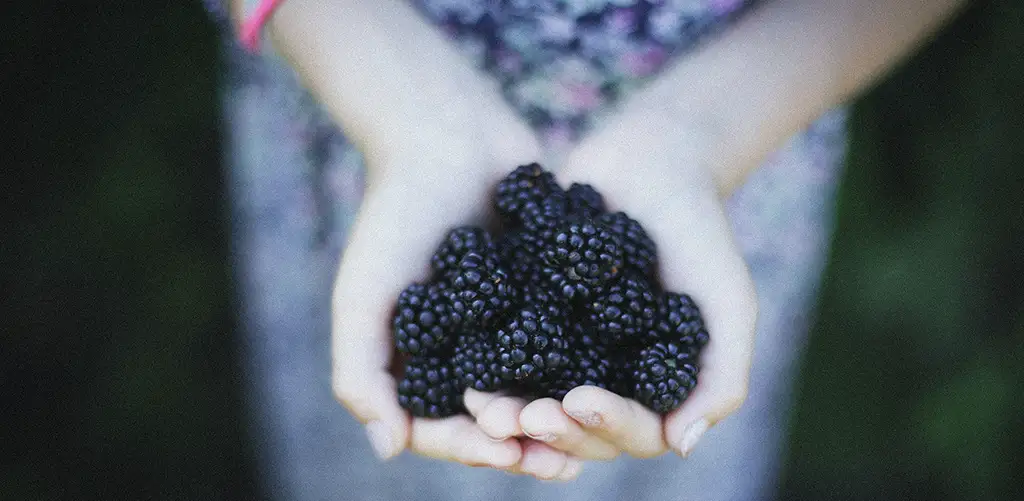
Anthocyanins might be the reason your blueberries look so pretty and vibrant—but their real magic goes far beyond colour. Anthocyanins, part of a group called polyphenols, are known for their antioxidant powers and are now gaining serious attention for their potential health benefits. From heart health to glowing skin, researchers are uncovering more about how these plant compounds could support the body in surprising ways. In this blog we will cover everything you need to know about the benefits of anthocyanins.
How anthocyanins function in the body
Once absorbed in the gut, anthocyanins begin circulating through the body and may interact with several biological systems. Even in small amounts, they seem to influence a variety of internal processes—especially those linked to inflammation, stress response, and cellular communication. These natural compounds appear to act as subtle messengers, touching everything from metabolic balance to immune activity. In the next sections, we’ll look at some of the ways anthocyanins might contribute to overall health.
Studies on anthocyanins
While anthocyanins are gaining attention for their potential health benefits, clinical human studies remain limited. Most insights come from reviews and laboratory research, which suggest a range of promising effects—from reducing inflammation to balancing hormones.
However, a notable study published in November 2024 explored a timely angle: anthocyanins might help protect the body from the harmful effects of micro- and nanoplastics—pollutants increasingly found in our food, blood, organs and even our brain. The researchers found that anthocyanins, such as cyanidin-3-glucoside, could reduce plastic-induced reproductive toxicity by interacting with estrogen and androgen receptors. These early findings suggest that anthocyanins may offer more than just general antioxidant support—they could also help counteract modern environmental stressors[1].
Read our blogs on how microplastics affect the human health here: Microplastics health impact and prevention strategies and New study: Microplastics impact on male reproductive health
Documented health benefits of anthocyanins
Based on recent reviews, anthocyanin has been linked to a variety of health benefits. Studies suggest it may help reduce inflammation and oxidative stress, support cardiovascular function, and play a role in metabolic balance. It also shows promise in protecting cognitive function, regulating blood sugar, and supporting gut and eye health. When it comes to skin benefits, anthocyanins might improve elasticity and reduce inflammation. And last but not least, there’s growing interest in how anthocyanins may support weight loss and help manage blood pressure. In the following, we’ll have a closer look and explore some of the most promising anthocyanins health benefits highlighted in recent research.
Cardiovascular health: Anthocyanins and blood pressure
A recent 2024 research suggests that anthocyanins may help lower blood pressure. They appear to boost nitric oxide production, which relaxes blood vessels and improves circulation. At the same time, they positively influence gut microbiota—another factor increasingly linked to hypertension. This dual action suggests that anthocyanins could be a useful addition to heart health routines[2].
Anthocyanins benefits on blood sugar and diabetes
Keeping blood sugar stable can be a daily challenge—but also here anthocyanins might offer some welcome support. For people with type 2 diabetes, a 2024 review found that regular anthocyanin intake can significantly lower fasting blood sugar and improve long-term glucose levels (HbA1c)[3].
The most noticeable results were seen with daily doses over 300 mg, taken for at least eight weeks. On top of that, anthocyanins also seem to ease inflammation and improve insulin sensitivity—two key issues in type 2 diabetes.
You might also like: Glucose Goddess hacks: Master blood sugar for health and longevity
Anthocyanins benefits for cholesterol and heart health
A 2021 narrative review published in Nutrients looked at findings from cell studies, animal models, and human trials. It showed that a daily intake of 320 mg of anthocyanins from sources like bilberries and blackcurrants for up to 24 weeks could lower LDL cholesterol by up to 13% and raise HDL by up to 19%. The effect was especially notable in people with high cholesterol, metabolic syndrome, or type 2 diabetes. The review also found improvements in blood vessel function, blood pressure, and arterial stiffness – highlighting anthocyanins as a natural way to support cardiovascular health[4].
How anthocyanins works on brain health and memory support
The same 2021 review that showed a positive effect on blood pressure also highlights the potential of anthocyanins to slow cognitive decline and support memory in older adults[4].
Anthocyanins appear to help protect the brain. In mice with Alzheimer’s disease, supplementation led to fewer amyloid-beta deposits and improved memory. And in smaller human studies, 12 weeks of daily blueberry or grape juice intake resulted in better memory in older individuals with mild cognitive impairment—likely due to the compounds’ antioxidant and anti-inflammatory effects.
A larger 2020 review supports these findings, showing that anthocyanins can reduce brain inflammation, protect nerve cells, and improve learning and memory in animal models. Extracts from blueberries, purple corn, and black soybeans showed especially promising results in studies on both Alzheimer’s and Parkinson’s disease[5].
Anthocyanins are good antioxidants
A 2024 review published in International Journal of Molecular Sciences examined a wide range of cell, animal, and human studies and concluded that anthocyanins are effective antioxidants. According to the study, they can both neutralize free radicals directly and support the body’s own antioxidant defenses – partly by activating the Nrf2 signaling pathway. This pathway plays a key role in the body’s protection against oxidative stress by boosting the production of endogenous antioxidants like glutathione and protective enzymes[6].
How anthocyanins supports longevity via the gut
One area that’s gaining increasing attention is the link between anthocyanins and gut health. A 2025 review found that these compounds help support a healthier gut microbiome by increasing beneficial bacteria like Bifidobacterium and Lactobacillus. They also strengthen the intestinal barrier and boost the production of short-chain fatty acids, which play key roles in immune and brain function. These effects were associated with reduced inflammation and better resilience against age-related diseases—suggesting that anthocyanins may promote longevity not just through antioxidant activity, but by creating a gut environment that benefits the whole body[7].
Anthocyanins benefits for skin
A 2024 review explored whether anthocyanins could help with photoaged skin—the kind of damage caused by long-term sun exposure. Common signs include dryness, uneven tone, and fine lines[8].
Anthocyanins may support skin repair by calming inflammation, boosting collagen production, lowering oxidative stress, and helping prevent DNA damage. The review also pointed out that how anthocyanins are delivered matters: encapsulated forms—like liposomes—were better absorbed, which makes them promising for both skincare and supplements aimed at protecting the skin.
Related: Bovine Collagen: What it is and its benefits
Anthocyanins and weight loss
While more studies are needed, some evidence suggests anthocyanins might help weight loss. Their role in reducing inflammation, balancing blood sugar, and supporting gut health all play a part in metabolic regulation—which could be useful in weight management.
Support your weight and improve your metabolism – without extreme diets, click here
Side effects and dosage of anthocyanins
Anthocyanins from food or supplements are generally very safe, even in high doses. No serious side effects have been reported with normal use of anthocyanins. If you’re pregnant or breastfeeding, it’s a good idea to talk to your doctor before taking concentrated anthocyanin – or any other supplements.
Anthocyanins and dietary labels
Since they come from plants, you’d think anthocyanins are always vegan and halal – and most of the time, they are. But when it comes to labeling something Anthocyanins halal, it’s not just about the source; it’s how they’re processed that matters. Some extracts are made using alcohol, and if there’s any left in the final product, it can be a problem for those following a halal diet. The same goes for things like capsules or added fillers – they can sometimes sneak in animal-based ingredients. That’s why more and more brands are choosing to get vegan and halal certified, just to keep things clear and make it easier for everyone to choose products that fit their lifestyle.
Related: 5 resveratrol foods you need to be eating more
Conclusion: The big picture on anthocyanins
From blood pressure and brain health to glowing skin and healthy aging, the list of anthocyanins benefits keeps growing. While we still need more human trials, especially large-scale ones, the research so far points to some exciting possibilities.
These compounds aren’t just about giving berries their colour—they interact with key systems in the body and may play a role in longevity. With their low risk of side effects and wide-ranging potential, anthocyanins are definitely worth keeping on your radar — whether you’re focused on heart health, brain support, or simply aging well.
References:
- Zhang, J., Liu, W., Cui, F., Kolehmainen, M., Chen, J., Zhang, L., & Zarei, I. (2024). Exploring the potential protective role of anthocyanins in mitigating micro/nanoplastic-induced reproductive toxicity: A steroid receptor perspective. Journal of Pharmaceutical Analysis, 15(2), 101148. https://doi.org/10.1016/j.jpha.2024.101148
- Xin, M., Xu, A., Tian, J., Wang, L., He, Y., Jiang, H., Yang, B., Li, B., & Sun, Y. (2024). Anthocyanins as natural bioactives with anti-hypertensive and atherosclerotic potential: Health benefits and recent advances. Phytomedicine, 132, 155889. https://doi.org/10.1016/j.phymed.2024.155889
- Kozłowska, A., & Nitsch-Osuch, A. (2024). Anthocyanins and type 2 diabetes: An update of human study and clinical trial. Nutrients, 16(11), 1674. https://doi.org/10.3390/nu16111674
- Ockermann, P., Headley, L., Lizio, R., & Hansmann, J. (2021). A review of the properties of anthocyanins and their influence on factors affecting cardiometabolic and cognitive health. Nutrients, 13(8), 2831. https://doi.org/10.3390/nu13082831
- Salehi, B., Sharifi-Rad, J., Cappellini, F., Reiner, Ž., Zorzan, D., Imran, M., Sener, B., Kilic, M., El-Shazly, M., Fahmy, N. M., Al-Sayed, E., Martorell, M., Tonelli, C., Petroni, K., Docea, A. O., Calina, D., & Maroyi, A. (2020). The therapeutic potential of anthocyanins: Current approaches based on their molecular mechanism of action. Frontiers in Pharmacology, 11, 1300. https://doi.org/10.3389/fphar.2020.01300
- Sadowska-Bartosz, I., & Bartosz, G. (2024). Antioxidant activity of anthocyanins and anthocyanidins: A critical review. International Journal of Molecular Sciences, 25(22), 12001. https://doi.org/10.3390/ijms252212001
- Chen, Y., Song, G., Zhao, C., Qi, W., & Wang, Y. (2025). Interactions between anthocyanins and gut microbiota in promoting healthy aging. Journal of Future Foods, 5(3), 229–238. https://doi.org/10.1016/j.jfutfo.2024.07.002
- Guo, X., He, L., Sun, J., Ye, H., Yin, C., Zhang, W., Han, H., & Jin, W. (2024). Exploring the potential of anthocyanins for repairing photoaged skin: A comprehensive review. Foods, 13(21), 3506. https://doi.org/10.3390/foods13213506
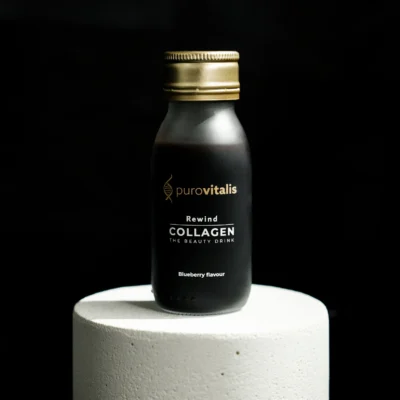
Experience the best of Collagen with Purovitalis liquid formula. Try it out!


